Search
Remove Ads
Advertisement
Summary 
Loading AI-generated summary based on World History Encyclopedia articles ...
Search Results
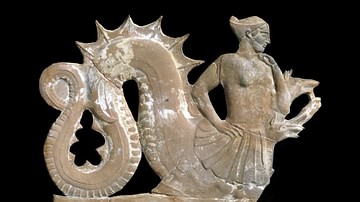
Definition
Scylla and Charybdis
Scylla and Charybdis were monsters from Greek mythology thought to inhabit the Straits of Messina, the narrow sea between Sicily and the Italian mainland. Preying on passing mariners, Scylla was a terrible creature with six heads and twelve...
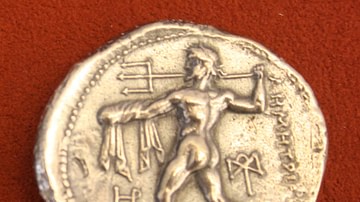
Definition
Poseidon
Poseidon was the Greek god of the sea and rivers, creator of storms and floods, and the bringer of earthquakes and destruction. He was perhaps the most disruptive of all the ancient gods but he was not always a negative force. He was a protector...
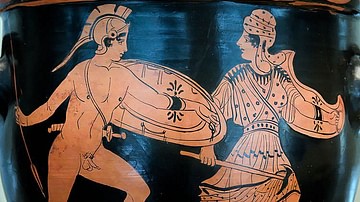
Article
A Visual Who's Who of Greek Mythology
Achilles The hero of the Trojan War, leader of the Myrmidons, slayer of Hector and Greece's greatest warrior, who sadly came unstuck when Paris sent a flying arrow guided by Apollo, which caught him in his only weak spot, his heel. Adonis...
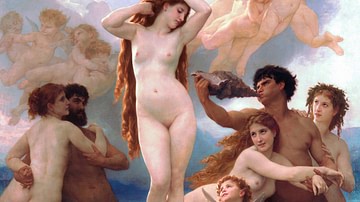
Definition
Greek Mythology
Greek mythology was used as a means to explain the environment in which humankind lived, the natural phenomena they witnessed and the passing of time through the days, months, and seasons. Greek myths were also intricately connected to religion...
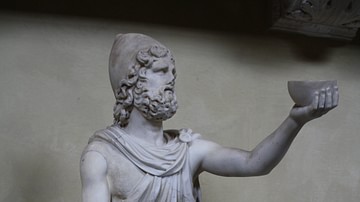
Definition
Odysseus
Odysseus (Roman name: Ulysses) was one of the great pan-Hellenic heroes of Greek mythology. He was famous for his courage, intelligence, and leadership. Odysseus' resourcefulness and oratory skills were instrumental in the Greek victory in...
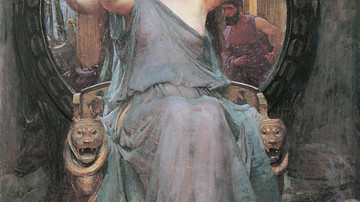
Definition
Circe
Circe (also spelt Kirké) is a powerful sorceress and goddess in Greek mythology with an exceptional talent for mixing drugs. She was the daughter of the sun god Helios and the Oceanid Perseis. Circe's home was found on the wooded island of...
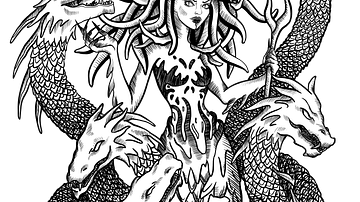
Image
Scylla
Scylla, whose name means 'she who rends' or 'puppy,' could only make the noise of a puppy dog, but she was well-endowed in other areas with six legs and six heads springing from various parts of her body, each with three vicious rows of teeth...
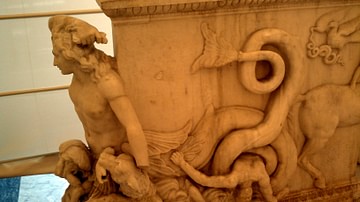
Image
Charybdis
A table support representing the sea monster Charybdis, who was said to haunt the straits between Sicily and the Italian peninsula. 2nd century CE.
Archaeological Museum of Naples.
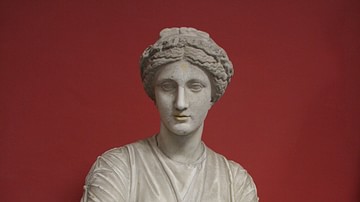
Article
Hesiod on the Birth of the Gods
The Greek poet Hesiod (c. 700 BCE) is most famous for his works Theogony and Works and Days. In this passage from Theogony, Hesiod relates the birth of the gods from cosmic Chaos and follows the lineage through the great Zeus, King of the...
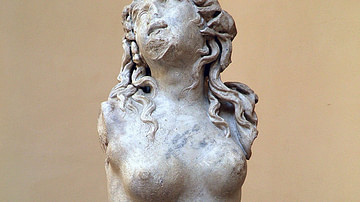
Image
Scylla Marble Statue
Marble statue of Scylla, a monstrous sea goddess who haunted the rocks of a narrow strait opposite the whirlpool daemon Charybdis (Kharybdis). Ships that sailed too close to her rocks would lose six men to her ravenous, darting heads. The...